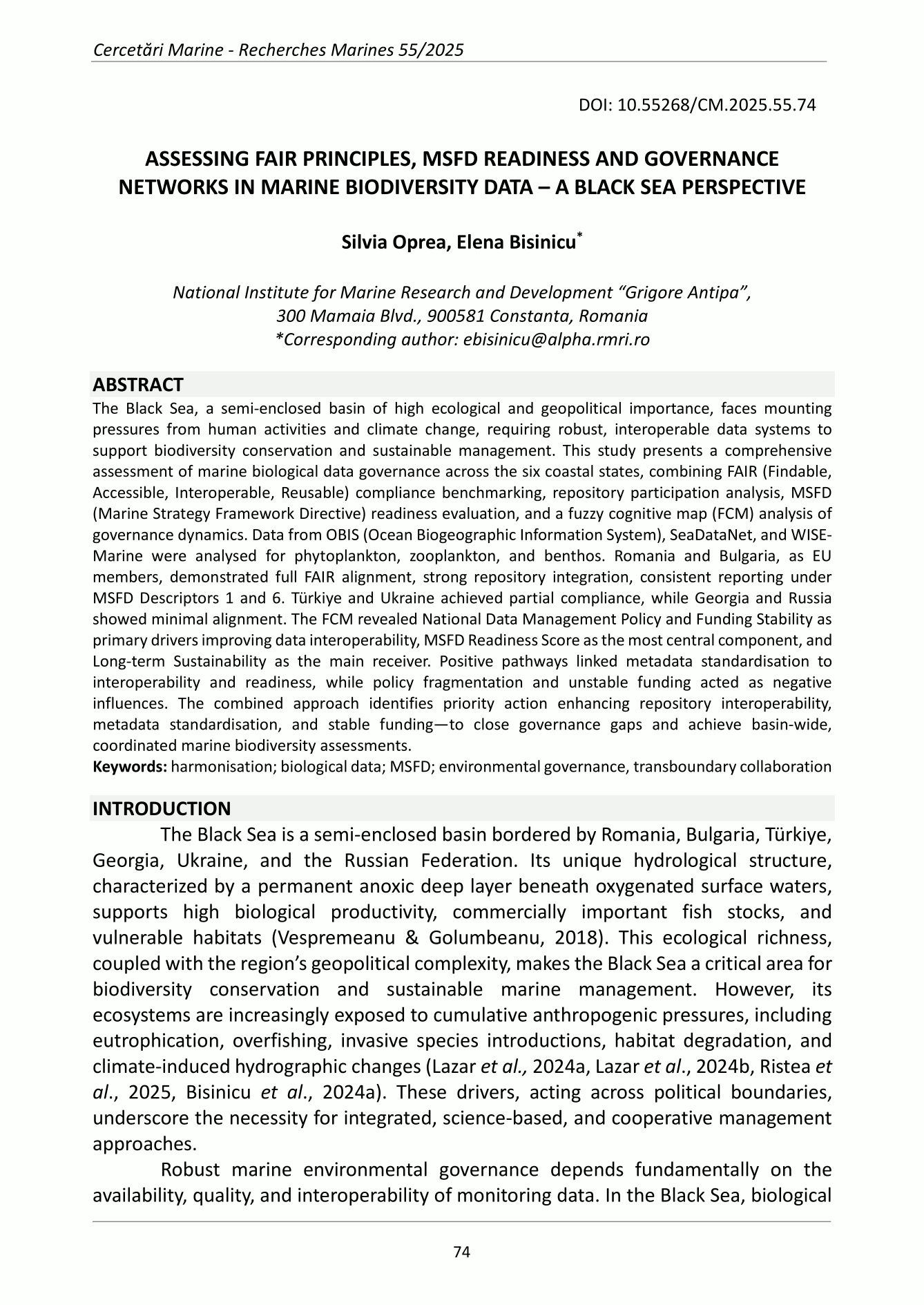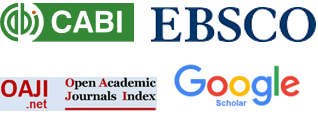ASSESSING FAIR PRINCIPLES, MSFD READINESS AND GOVERNANCE NETWORKS IN MARINE BIODIVERSITY DATA – A BLACK SEA PERSPECTIVE
DOI:
https://doi.org/10.55268/CM.2025.55.74Keywords:
harmonisation, biological data, MSFD, environmental governance, transboundary collaborationAbstract
The Black Sea, a semi-enclosed basin of high ecological and geopolitical importance, faces mounting
pressures from human activities and climate change, requiring robust, interoperable data systems to
support biodiversity conservation and sustainable management. This study presents a comprehensive
assessment of marine biological data governance across the six coastal states, combining FAIR (Findable,
Accessible, Interoperable, Reusable) compliance benchmarking, repository participation analysis, MSFD
(Marine Strategy Framework Directive) readiness evaluation, and a fuzzy cognitive map (FCM) analysis of
governance dynamics. Data from OBIS (Ocean Biogeographic Information System), SeaDataNet, and WISE-
Marine were analysed for phytoplankton, zooplankton, and benthos. Romania and Bulgaria, as EU
members, demonstrated full FAIR alignment, strong repository integration, consistent reporting under
MSFD Descriptors 1 and 6. Türkiye and Ukraine achieved partial compliance, while Georgia and Russia
showed minimal alignment. The FCM revealed National Data Management Policy and Funding Stability as
primary drivers improving data interoperability, MSFD Readiness Score as the most central component, and
Long-term Sustainability as the main receiver. Positive pathways linked metadata standardisation to
interoperability and readiness, while policy fragmentation and unstable funding acted as negative
influences. The combined approach identifies priority action enhancing repository interoperability,
metadata standardisation, and stable funding—to close governance gaps and achieve basin-wide,
coordinated marine biodiversity assessments.

Downloads
Published
How to Cite
Issue
Section
License

This work is licensed under a Creative Commons Attribution-NonCommercial-NoDerivatives 4.0 International License.
This is an open access journal, which means that all content is freely available without charge to the user or his/her institution. Users are allowed to read, download, copy, distribute, print, search, or link to the full texts of the articles, or use them for any other lawful purpose, without asking prior permission from the publisher or the author. This is in accordance with the BOAI definition of open access.






